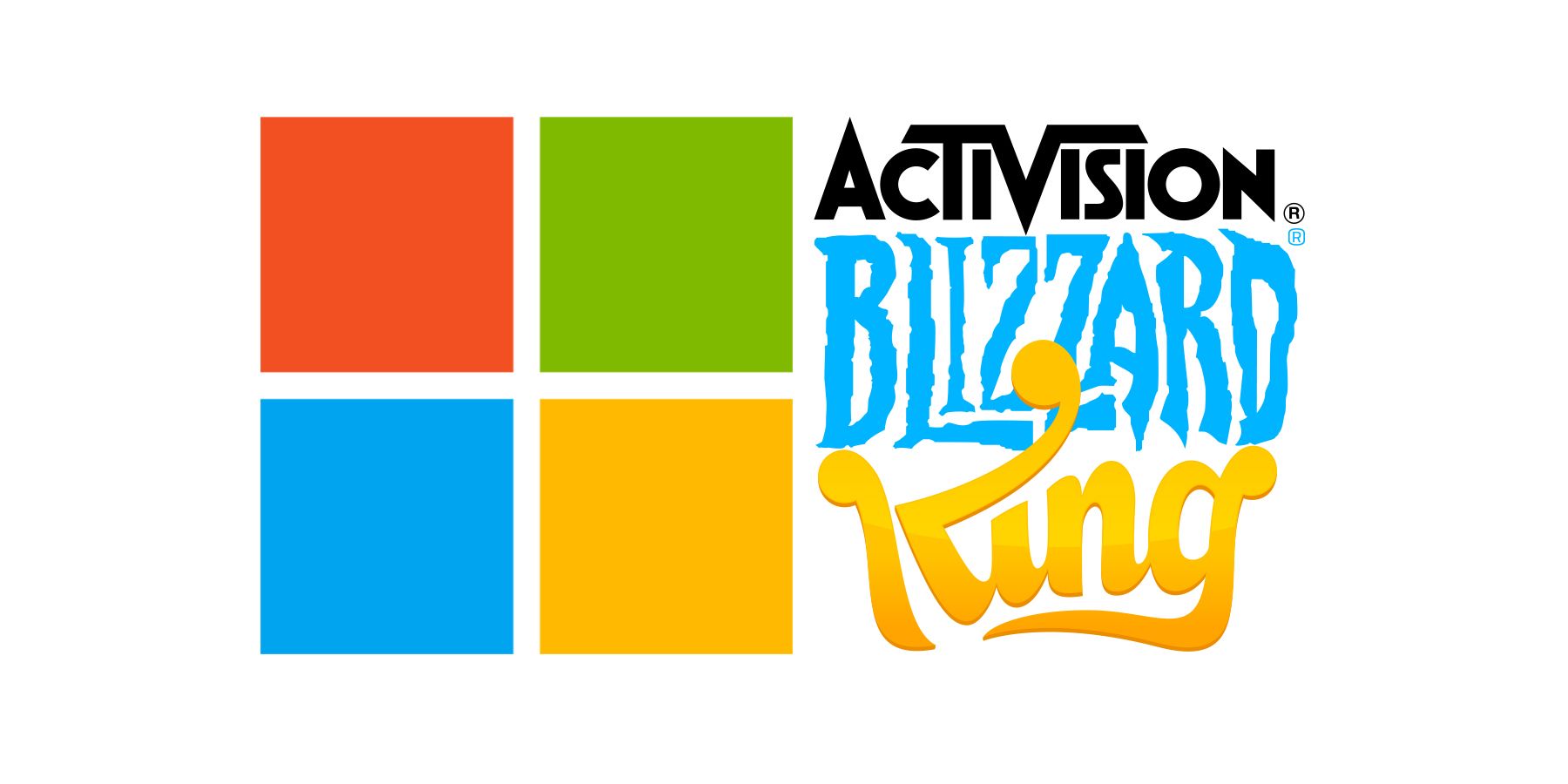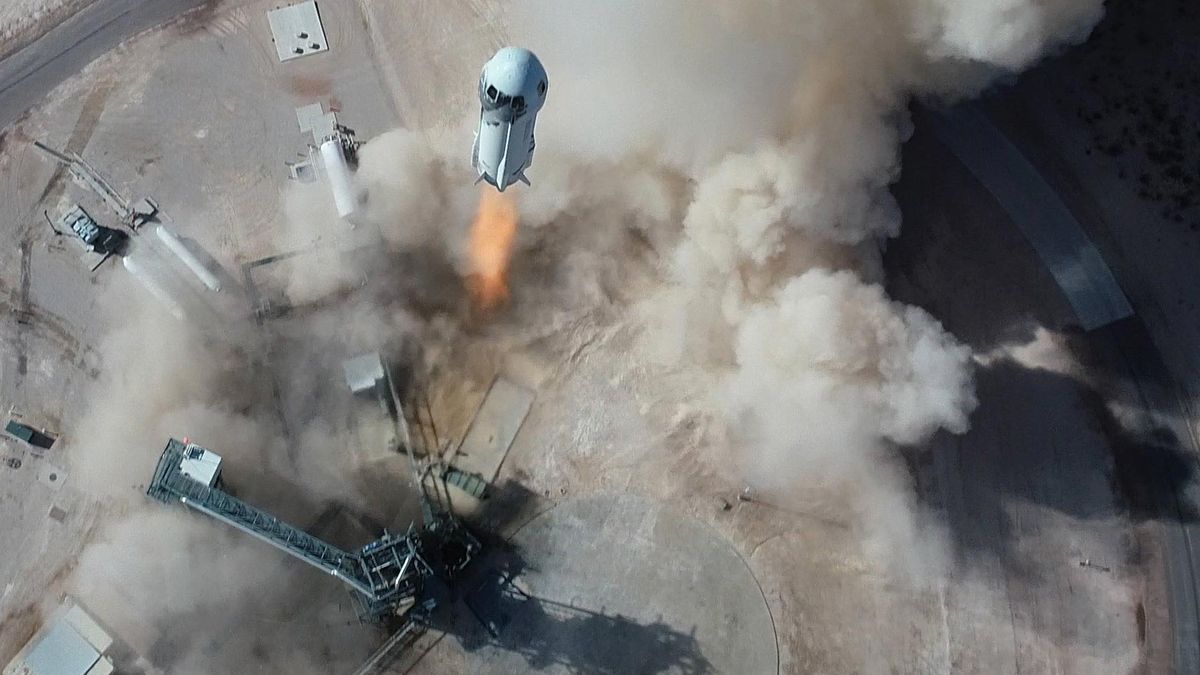FTC Appeals Microsoft-Activision Merger Ruling

Table of Contents
The FTC's Arguments Against the Merger
The FTC's core concern revolves around the potential for anti-competitive behavior stemming from Microsoft's acquisition of Activision Blizzard. They argue that the merger would significantly reduce competition in the already consolidated gaming market, ultimately harming consumers. Their specific concerns include:
-
Loss of Competition in the Gaming Console Market: The FTC fears that Microsoft could leverage its ownership of Activision Blizzard's popular franchises, particularly Call of Duty, to gain an unfair advantage over its competitors, Sony and Nintendo, potentially driving up prices or limiting the availability of games on competing platforms. This dominance, they contend, would stifle innovation and choice for gamers.
-
Reduced Innovation Due to Lessened Competition: With less competition, the FTC argues, there's less incentive for Microsoft to innovate and improve its gaming services. The lack of pressure from rivals could lead to stagnation in game development, features, and overall quality.
-
Concerns over Activision Blizzard's Key Franchises and Their Exclusivity: The FTC highlights the potential for Microsoft to make key Activision Blizzard franchises, including Call of Duty, World of Warcraft, and Candy Crush, exclusive to its Xbox ecosystem. This would significantly limit player choice and potentially lock consumers into the Microsoft ecosystem.
-
The Impact on Cloud Gaming Services: The FTC is also worried about the merger's potential impact on the burgeoning cloud gaming market. They believe Microsoft could leverage its control over Activision Blizzard's content to limit access for competing cloud gaming providers, hindering innovation and growth in this rapidly expanding sector.
The FTC's official statements emphasize the potential for market dominance and resulting harm to consumers. They argue that the merger could lead to higher prices, reduced choice, and a less innovative gaming landscape. For example, an FTC statement highlighted the "substantial lessening of competition" that would result from Microsoft controlling Call of Duty.
Microsoft's Defense of the Merger
Microsoft has vehemently refuted the FTC's claims, arguing that the merger will actually increase competition and benefit consumers. Their key arguments include:
-
Emphasis on Increased Competition in the Gaming Market: Microsoft maintains that the acquisition will broaden the gaming market and foster more competition, not reduce it. They point to their commitment to bringing Activision Blizzard games to various platforms as evidence of their commitment to inclusivity.
-
Promises to Maintain Call of Duty's Availability Across Multiple Platforms: A central element of Microsoft's defense is its repeated pledge to keep Call of Duty available on PlayStation and other platforms. They've offered long-term contracts with Sony to guarantee this, aiming to alleviate concerns about exclusivity.
-
Arguments That the Merger Will Foster Innovation and Benefit Consumers: Microsoft claims the merger will accelerate innovation by combining resources and expertise. They argue this will ultimately lead to better games and a more enriching gaming experience for consumers.
-
Highlighting Benefits to Activision Employees and Game Development: Microsoft emphasizes the positive impact the merger will have on Activision Blizzard employees, promising increased job security and resources for game development.
Microsoft has presented data and studies to support its claims, including commitments to keep Call of Duty on PlayStation for many years to come, attempting to demonstrate that the merger won't significantly harm competition.
The Role of the Judge and Previous Rulings
A previous court ruling allowed the merger to proceed, with the judge finding that the FTC had not met the burden of proof to demonstrate the merger would substantially lessen competition. The judge's reasoning centered on Microsoft’s commitments to maintain Call of Duty’s availability on competing platforms. However, the FTC's appeal argues that the initial ruling overlooked crucial aspects of the case, highlighting the potential long-term implications of the merger on competition and innovation within the gaming industry. The legal precedents involved focus heavily on the definition of "substantial lessening of competition" and the weight given to commitments made by merging entities.
Potential Outcomes and Implications of the Appeal
The FTC's appeal could lead to several outcomes: the court could uphold the initial ruling, potentially allowing the merger to proceed; it could reverse the ruling, blocking the acquisition; or it could mandate certain concessions from Microsoft to address competitive concerns.
The implications are far-reaching. A blocked merger would represent a significant setback for Microsoft, costing billions and potentially reshaping its gaming strategy. For Activision Blizzard, it could mean continued uncertainty and potential impacts on employee morale and future development plans. For the gaming industry as a whole, it would set a crucial precedent for future mergers and acquisitions. Delays are almost certain, further prolonging the uncertainty. Significant fines or other repercussions for Microsoft are also a possibility if the appeal is successful.
Conclusion: The Future of the Microsoft-Activision Merger and FTC Appeals
The FTC's appeal of the Microsoft-Activision merger highlights a crucial clash between the desire for large-scale technological consolidation and concerns about maintaining a competitive gaming market. Both sides have presented compelling arguments, but the ultimate outcome remains uncertain. The appeal's resolution will not only impact Microsoft and Activision Blizzard but also set a precedent for future mergers and acquisitions within the tech industry, particularly within the gaming sector. The FTC's appeal and its potential consequences demand close scrutiny. Follow the FTC's appeal closely and stay updated on the Microsoft-Activision merger to understand the evolving landscape of antitrust law in the gaming industry. Learn more about the ongoing developments by visiting the FTC website and following reputable news sources covering the case.

Featured Posts
-
 Hegseth Under Fire Pentagon Chaos Claims And Signal Chat Controversy
Apr 22, 2025
Hegseth Under Fire Pentagon Chaos Claims And Signal Chat Controversy
Apr 22, 2025 -
 Assessing The Feasibility Of A Pan Nordic Military Alliance Tanks Troops And Beyond
Apr 22, 2025
Assessing The Feasibility Of A Pan Nordic Military Alliance Tanks Troops And Beyond
Apr 22, 2025 -
 Full List Celebrities Affected By The Palisades Fires In Los Angeles
Apr 22, 2025
Full List Celebrities Affected By The Palisades Fires In Los Angeles
Apr 22, 2025 -
 Pope Francis Dies At 88 Pneumonia Confirmed As Cause Of Death
Apr 22, 2025
Pope Francis Dies At 88 Pneumonia Confirmed As Cause Of Death
Apr 22, 2025 -
 Subsystem Issue Forces Blue Origin To Cancel Rocket Launch
Apr 22, 2025
Subsystem Issue Forces Blue Origin To Cancel Rocket Launch
Apr 22, 2025
